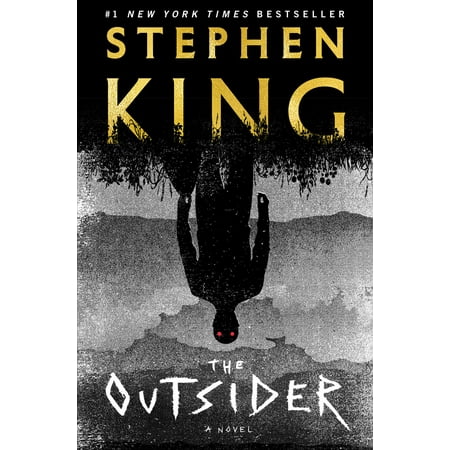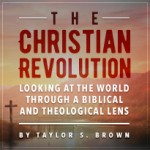Its been a while since I posted some of my writing on here. In the past I have blamed this kind of absence on laziness, but this time I can say that it has been for good reasons. I recently moved to Waco, TX to begin a PhD program in New Testament at Baylor University. All things considered the transition has gone pretty well so far. I am still in the settling-in phase of the transition and completed a month-long intensive course on reading German for research purposes (thankfully I do not have to speak it!).
That being said, I wanted to jump right into the deep end with this post. My resolution for 2019 was to read (or in my case, listen via my Audible app on my phone) more fiction. I have been a fairly avid reader for all of my life. However, most of what I have read has been nonfiction, usually related to history, theology, religion, philosophy, etc.
To correct this literary deficiency I resolved to read more fiction throughout the year. So far it has been going pretty well. My disposition has of course led me to some of the cheeriest of authors: Cormac McCarthy and Stephen King, among others.
I’m a veritable ball of sunshine at social gatherings.
It has been a joy to dive into the works of both of these authors. McCarthy’s books, The Road and No Country for Old Men were nothing short of profound in their ruminations on human morality (or the lack thereof in some characters). I also started Blood Meridian but have put it on hold until I get through a few other things.
The focus of this post, though, is going to be some of Stephen King’s massive body of work. Since starting my fiction reading resolution (actually since October with King’s work) I have made my way through ‘Salem’s Lot, Pet Semetary, all but the end of The Shining, and two of King’s most recent novels, The Outsider and Elevation. All have been excellent books, and they have now pushed me into some of the denser parts of the King Mythos. About a month ago I started on the massive It. I’m hoping to get it done by the time It Part Two hits theaters later in the summer, but it is a massive tome so we will see what happens.
While reading King’s works has been a joy in itself, and has actually improved my own writing (turns out if you only read academic work, your writing will be a bit stiff and wooden), one thing has continually struck me throughout his stories. In almost all of them there is the presence of some sort of preternatural or supernatural evil force that plagues the protagonist(s). In ‘Salem’s Lot the ancient and malevolent vampire, Kurt Barlow, slowly feeds on and turns the town of Jerusalem’s Lot into undead spawn. Louis Creed finds himself up against some sort of elemental evil (glimpses of the wendigo are seen in the tale) that has turned the very ground of an ancient burial ground “rotten” and all those things buried in it are returned to a monstrous imitation of life in Pet Sematary. The Overlook Hotel in The Shining is itself possessed by some dark entity corrupting many of those who walk its haunted halls. Pennywise the Dancing Clown in It is an ancient eldritch horror that feeds on children in whom it instills terror and drives mad. In the most recent of King’s horror novels, The Outsider, a mysterious creature—who bares some similarities to the creature from It—takes on the face of innocent people, framing them for grisly murders of terrorized children.
King is not called one the 20th century’s preeminent horror writers for nothing.
What is really interesting about this macabre menagerie of vampires, zombie cats, demonic hotels, eldritch horrors, and shapeshifting creatures is how they both challenge the modernist secular conception of reality, and how they can help Christians to grasp a stronger understanding of the dark spiritual powers described in the New Testament; the powers that Christ has warred against and dealt a death blow to in His crucifixion and resurrection.
While a whole book could be devoted to the spiritual and theological resonances in King’s mythos (if you didn’t know, there is a shared universe that unites most of King’s books from ‘Salem’s Lot to the Dark Tower series), I want to focus here on themes found in two of his books: ‘Salem’s Lot (Doubleday, 1975; one of King’s earliest books), and The Outsider (Scribner, 2018; one of King’s latest books). Particularly, I want to focus on the theme of the evil entities that plague people in the novels and the subtle, but powerful forces of good that oppose them from unforeseen places.
The interplay of these elements in King’s works can not only help Christians to better understand the complex picture of the spiritual realm depicted in the Bible, it can also help us to see how the neutered, empiricist picture of reality given to us by modernity is insufficient to deal with the world we actually inhabit.
Full Spoiler Warning: While I will not give every detail away, by necessity I will have to talk about some of the key plot elements in the two books. This means there will be some fairly significant spoilers ahead. If you have not yet read the aforementioned books and you want to go in fresh, then you might stop reading. However, the books are still fantastic even with spoilers and my summaries will not diminish them. That said, with regard to plot spoilers, from here on it is “reader beware.”
‘Salem’s Lot

The classic vampire horror novel, ‘Salem’s Lot (1975) was King’s second novel to be published (the first being Carrie). Without giving too much of the plot away, the story revolves around the writer Ben Mears returning home to the fictional town of Jerusalem’s Lot, Maine (thus the shortened title of ‘Salem’s Lot). While the return is meant to serve as inspiration for a new book, Mears ends up finding a darker chain of events unfolding in the little New England town. In the background of the town’s daily life, an ancient, evil vampire named Kurt Barlow and his human thrall, Richard Straker, have silently moved into the “the Lot” and begun the process of turning the populace into vampires. Slowly, the town’s residents begin to disappear into the night, with some reemerging as minions of Barlow. A ragtag resistance is formed by Mears, his lover Susan Norton, a boy named Mark Petrie, the local high-school English teacher Matt Burke, local doctor Jimmy Cody, and the alcoholic (yet still good-hearted) Catholic priest, Donald Callahan.
The members of this resistance eventually dwindle down to just Mears and Petrie. Undeterred, Ben and Mark make there way to Barlow’s resting place, hidden away in the basement of town local Eva Miller’s boarding house. With only minutes of daylight left to spare, time is of the essence in getting to Barlow and killing him in his weakened, sleeping state. And yet a final, padlocked door stands between Ben Mears and the defeat of the evil creature that has taken his friends and the woman he loves from him. All seems lost for Ben and Mark during this climactic point in the story, and yet something beyond the “natural” comes to their aid:
Frustration welled up in [Mark’s] throat. To be balked like this at the end, balked by a five-dollar padlock—
No. He would bite through the wood with his teeth if he had to.
He shone the flashlight around, and its beam fell on the neatly hung tool board to the right of the stairs. Hung on two of its steel pegs was an ax with a rubber cover masking its blade.
He ran across, snatched the it off the wallboard, and pulled the rubber cover from the blade. He took one of the ampoules [of holy water, given previously by Father Callahan] from his pocket and dropped it. The holy water ran out on the floor, beginning to glow immediately. He got another one, twisted the small cap off, and doused the blade of the ax. It began to glimmer with eldritch fairy-light. And when he set his hands on the wooden haft, the grip felt incredibly good, incredibly right. Power seemed to have welded his flesh into its present grip. He stood, holding it for a moment, looking at the shining blade, and some curious impulse made him touch it to his forehead. A hard sense of sureness clasped him, a feeling of inevitable rightness, of whiteness. For the first time in weeks he felt he was no longer groping through fogs of belief and unbelief, sparring with a partner whose body was too insubstantial to sustain blows.
Power, humming up his arms like volts.
The blade glowed brighter.
Ben Mears spread his feet, slung the ax back, and brought it down in a gleaming arc that left an after-image on the eye. The blade bit wood with a booming, portentous sound and sunk to the haft. Splinters flew…
…Mark stared at him, amazed. The cold blue fire had crept down the ax handle and spread up [Ben’s] arms until he seemed to be working in a column of fire… (pp. 417-18)
The “Force” that overcomes Ben allows the two of them to finally make their way into Barlow’s lair and kill him. However, even with Barlow’s demise, the town of Jerusalem’s Lot has already begun to succumb to the vampire epidemic set in motion by Barlow and Straker earlier in the book.
The story concludes where it begins, in the prologue with Ben and Mark fleeing to Mexico. Interestingly, Mark ends up converting to Christianity (Roman Catholicism, following the influence of Father Callahan) while there, confessing everything to the local priest. Mark’s cycle toward the light concludes in this way. It is only after all of this—the killing of Barlow, the flight to Mexico, and Mark’s conversion—that the epilogue of the book comes full circle, with Ben and Mark returning to “the Lot,” now a ghost town inhabited only by vampires. Looking over the undead town Ben and Mark start a small grass fire that blows toward the town, hopefully to burn it all to the ground and cleanse it of the evil infection.
The Outsider

The Outsider, published in 2018, is one of King’s most recent novels. Without giving too much away, the plot of the book begins with the the arrest of a respected family man, Terry Maitland, in the fictional town of Flint City, Oklahoma (my home state!) by veteran detective Ralph Anderson, for the grizzly murder of young boy. What starts out as a crime drama soon morphs into a twisting tale of supernatural horror. Events escalate in the narrative to the point where Ralph Anderson realizes that, despite overwhelming empirical evidence (Maitland’s DNA was found on the corpse of the murdered child, among other things), Terry Maitland is not the murderer that the Flint City PD thought he was. While Anderson begins to come to this realization on his own, it is another one of King’s characters, Holly Gibney (from King’s “Bill Hodges Trilogy” of novels), who herself has confronted things beyond the “normal” sphere of experience, who comes to Anderson’s aid, finally convincing him that the real murderer is not human at all. It is something altogether monstrous.
As Holly is trying to figure out how to convince Anderson that it was not a human being that killed the Flint City boy, but rather a shape-shifting creature that can alter its DNA to copy that of another person, she brings forth an interesting thought:
“A person did what a person could, whether it was setting up gravestones [that had been toppled over by hateful people] or trying to convince twenty-first-century men and women that there were monsters in the world, and their greatest advantage was the unwillingness of rational people to believe.”
– Stephen King
The Outsider (p. 356)
With this line, I think we can start getting at what Stephen King’s supernatural and horror fiction does so well: it unsettles us. It upsets the tidy little world that modernity has given us, one where no supernatural (let alone divine) feet are allowed in the metaphorical door of our lived experiences. If we can convince ourselves that there is nothing beyond natural laws and matter in motion then we can also convince ourselves that we are ultimately in control of the world and our existence in it. We screen out God so that we might be able to try and make ourselves out to be gods. Theres something in the Bible about that. It involves a tower, Babylon, Egypt… But I digress.
King himself actually brings this up in what is arguably his magnum opus, It (Viking, 1986). While the novel is far too massive (a little over 1100 pages!) to delve into in depth, there is a particular passage about 1/3 of the way through that exemplifies this shattering of fragile modernist framework of reality:
[Stan Uris] wanted to tell them that those dead boys [a manifestation of the shapeshifting Pennywise] who had lurched and shambled their way down the spiral staircase had done something worse than frighten him: they had offended him. Offended, yes. It was the only word he could think of, and if he used it they would laugh—they liked him, he knew that, and they had accepted him as one of them, but they would still laugh. All the same, there were things that were not supposed to be. They offended any sane person’s sense of order, they offended the central idea that God had given the earth a final tilt on its axis so that twilight would only last about twelve minutes at the equator and linger for an hour or more up where the Eskimos built their ice-cube houses, that He had done that and He then had said, in effect: “Okay, if you can figure out the tilt, you can figure out any damn thing you choose. Because even light has weight, and when the note of a trainwhistle suddenly drops it’s the Doppler effect and when an airplane breaks the sound barrier that bang isn’t the applause of the angels or the flatulence of demons but only air collapsing back into place. I gave you the tilt and then I sat back about halfway up the auditorium to watch the show. I got nothing else to say, except that two and two makes four, the lights in the sky are stars, if there’s blood grownups can see it as well as kids, and dead boys stay dead.” You can live with fear, I think, Stan would have said if he could. Maybe not forever, but for a long, long time. It’s offense you maybe can’t live with, because it opens up a crack inside your thinking, and if you look down into it you see there are live things down there, and they have little yellow eyes that don’t blink, and there’s a stink down in that dark, and after awhile you think maybe there’s a whole other universe down there, a universe where a square moon rises in the sky, and the stars laugh in cold voices, and some of the triangles have four sides, and some have five, and some of them have five raised to the fifth power of sides. In this universe there might grow roses which sing. Everything leads to everything, he would have told them if he could. Go to your church and listen to your stories about Jesus walking on the water, but if I saw a guy doing that I’d scream and scream and scream. Because it wouldn’t look like a miracle to me. It would look like an offense.
It (pp. 436-437)
To the mind shaped by modernity—that system of thought that grew out of the Enlightenment which simply asserts that there is nothing beyond that which can be empirically verified—those things, those events which break through the glass walls of the mundane world are not simply frightening, they are offensive.
King even brings Christ himself into the equation with Uris’s thoughts. Christ’s walking on the water is the polar opposite of the darkness of demonic entities, real or fictional. Yet for a boy like Stan Uris (and for King’s readers), inculcated as he is by the modernist ethos (and who among is not?), even the light of Christ walking on the water, subduing chaotic storms is “offense.”
So what then of Ralph Anderson and Holly Gibney’s pursuit of the shapeshifting serial killer who framed Terry Maitland? The novel reaches its climax when Anderson and Gibney chase the Outsider to his lair, a cave in Marysville Texas called the Marysville Hole. There, they confront the creature and learn that it feeds on the fear instilled in children before it kills them, similar to the way Pennywise in It feeds on the fear and pain of those it kills (again, King has an overarching shared “multiverse” behind much of his fiction). The two of them manage to kill the Outsider albeit with the loss of some friends along the way. After all is said and done, after they have returned to Oklahoma, after Terry Maitland’s name has been cleared, and as Holly Gibney is about to return home, the two characters discuss a few strange coincidences that allowed them to find out about the Outsider. One of these was a seemingly innocuous receipt in an abandoned van used by the creature. Holly broaches the inexplicable presence of the paper to Ralph:
“We talked about explanations for why [the paper] ended up where it did, do you remember?”
“Sure.”
“They all seem so unlikely to me. It never should have been there at all, but it was. And if not for that scrap—the link to what happened in Ohio—that thing might still be out there.”
“Your point being?”
“It’s simple,” Holly said. “There’s also a force for good in the world. That’s something else I believe. Partly so I don’t go crazy when I think of all the awful things that happen, I guess, but also. . . well . . . the evidence seems to bear it out wouldn’t you say? Not just here but everywhere. There’s some force that tries to restore the balance. When the bad dreams come, Ralph, try to remember that little scrap of paper.”
He didn’t reply at first, and she asked what he was thinking about. The screen door slammed: Jeannie [Ralph’s wife] with coffee. Their time together alone was almost up.
“I was thinking about the universe. There really is no end to it, is there? And no explaining it.”
“That’s right,” she said. Not point in even trying.”
– The Outsider (p. 551)
A force for good that fights in subtle ways against the darkness. Where books like Pet Semetary end with darkness, King ends the The Outsider with a note of hope. Despite all the darkness and evil—despite creatures that feed on fear and death—there is still a force for good in the midst of it all.
A force that ignites common axes with light to slay vampires.
A force that gives children the courage to fight monsters under the sewers of Derry, Maine.
A force for good, working subtly and imperceptibly.
A light in the darkness.
The Powers that Christ Defeats
What then does all of this have to do with Bible and the Christian life then? King himself, while believing in God, is no orthodox Christian and actively thinks organized religion is harmful. How then are novels about vampires, haunted hotels, eldritch clowns, and shape-shifting murderers supposed to help us better understand the Christian conception of the world?
They help because they shake us out of our post-Enlightenment malaise.
I quoted the section from It above where Stan Uris is not so much afraid of the supernatural as he is offended by it. This theme is picked up with great force in The Outsider. For a large chunk of the novel Ralph Anderson and other investigators refuse to believe that Terry Maitland is innocent, even with eyewitness and video evidence confirming him being hours away at the time of the killing. They refuse to believe that something else could be at work because such supernatural phenomena “just don’t happen.” Until they do. And until someone like Holly Gibney comes along to help them see a larger, far more complex picture of reality.
The New Testament (as well as the Old) describes a world that is subjected to enslavement by not only Sin and Death, but by dark spiritual powers and the systems of oppression they co-opt. This is most evident in Jesus’s earthly ministry. His ministry prior to his push toward Jerusalem, toward crucifixion and resurrection, is basically divided into two parts: teaching and proclaiming the Kingdom of God and driving out oppressive demonic forces and sickness. Indeed, when Peter begins to proclaim the gospel to the Gentiles in early parts of Acts a key part of the proclamation is Jesus’s defeat of demonic powers:
36 You know the message he sent to the people of Israel, preaching peace by Jesus Christ—he is Lord of all. 37 That message spread throughout Judea, beginning in Galilee after the baptism that John announced: 38 how God anointed Jesus of Nazareth with the Holy Spirit and with power; how he went about doing good and healing all who were oppressed by the devil, for God was with him. 39 We are witnesses to all that he did both in Judea and in Jerusalem. They put him to death by hanging him on a tree; 40 but God raised him on the third day and allowed him to appear, 41 not to all the people but to us who were chosen by God as witnesses, and who ate and drank with him after he rose from the dead. – Acts 10:36-41 (NRSV)
Similar sentiments are found in writings of the Apostle Paul. Paul is often (wrongly) thought of as being solely concerned with the salvific aspects of the gospel. This is a major mischaracterization. Paul fully believed that part of the Christian life—the life of those freed from the bondage of Sin, Death, and the dark powers—entailed warring against spiritual forces:
12 For our struggle is not against enemies of blood and flesh, but against the rulers, against the authorities, against the cosmic powers of this present darkness, against the spiritual forces of evil in the heavenly places. – Eph. 6:12 (NRSV)
Even for those of us who take the Bible quite seriously and even theoretically believe in spiritual forces, the prospect of actually coming face-to-face with them is not only jarring, it is offensive. Whether we realize it or not, all of us have some hesitancy to really believe in spiritual conflict. Often we either chalk it up to mythological language or something that only crazy, snake-handling fundamentalists believe.
We may believe in “spiritual forces” theoretically, but we don’t think they’ll ever actually impinge upon our lives.
This is why reading someone like King is helpful. Many of his novels are postmodern in the best sense of the word: they aim to shatter the false security of the carefully cordoned off modernist worldview. By means of fictional towns like Jerusalem’s Lot, Derry, and Flint City, and by means of fantastic creatures like Kurt Barlow, Pennywise the Clown, and the Outsider, King invites us to see just how fragile the modernist framework is.
The supernatural offends us not because it is necessarily wrong, but because we have built a world that is too small.
Reading King’s work can, in a strange way, help us to re-enter the world of the New Testament writers. Good horror fiction can help us to foster as new social imaginary that allows us as Christians to be open to what early Christians like the Apostle Paul when they said that we war against “spiritual forces in the heavenly places,” the forces to which Christ Himself as dealt the climactic death blow in his cross and resurrection. Above all else, King’s work can help us to see what it means that there is, in the real world that we inhabit, also a supreme power for good that works in subtle ways against the darkness. A supreme power Who has and will destroy the darkness once and for all.
That, and his writing is also just creepy, good fun.
Soli Deo Honor et Gloria










